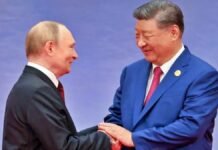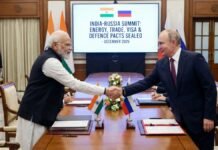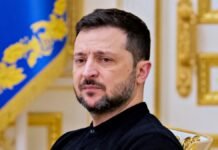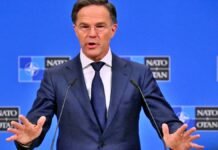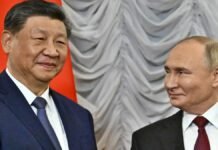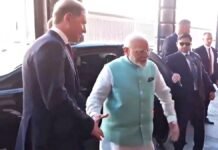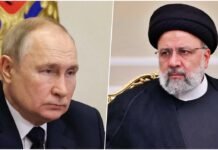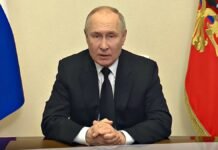
Key Points
- Russian President Vladimir Putin will visit India for the high-profile India-Russia Summit late 2025, his first trip since the Ukraine war began.
- The agenda includes defense, energy, nuclear cooperation, Arctic research, and high-tech ties.
- India’s steadfast trade including major oil and arms purchases with Russia has sparked concerns and warnings from the US and NATO.
- Dates for the summit in New Delhi are yet to be finalized amid heightened diplomatic activity.
- EU’s fresh sanctions add further urgency and significance to the upcoming summit for both sides.
New Delhi: In a major diplomatic signal amid ongoing global tensions, Russian President Vladimir Putin is set to visit India for the first time since the start of the Ukraine-Russia war. The announcement comes as preparations ramp up for the annual India-Russia Summit scheduled to be held in New Delhi at the end of the year, an event now drawing international scrutiny due to the rapidly changing geopolitical landscape.
Summit Agenda: Deepening Strategic Partnership
Putin’s visit is expected to cover a comprehensive array of strategic topics:
- Defense cooperation: Joint weapons projects (notably the S-400 missile defense system and BrahMos missiles), ongoing arms deals, and future military technology partnerships.
- Energy partnership: Expanded hydrocarbon trade, long-term oil contracts, and nuclear energy cooperation.
- Technology & Science: Collaboration on Arctic exploration and high-tech sectors, including AI, advanced manufacturing, and telecommunications.
- Nuclear collaboration: New joint projects under India’s civilian nuclear energy program.
India’s Ministry of External Affairs, highlighting the summit’s importance, confirmed that the New Delhi meet will follow the last summit held in Moscow, with final dates to be decided soon by both governments.
West’s Anxiety: US and NATO Concerned Over India-Russia Ties
Putin’s trip to India has reignited apprehension in Washington and European capitals. Both the US and NATO have repeatedly urged India to scale back military and energy ties with Moscow, citing ongoing sanctions against Russia in response to the Ukraine invasion. This pressure has intensified since the announcement of Putin’s impending visit.
The US has specifically warned that continued large-scale Indian purchases of Russian oil and weapons are blunting the impact of sanctions and undermining Western diplomatic leverage especially as India and China remain Russia’s top energy customers. NATO leaders, echoing these sentiments, have called for greater Indian alignment on sanctions and a robust stand against Russia’s war policy.
India’s Position: Navigating Geopolitical Crossroads
Despite Western pressure, India has defended its right to engage in mutually beneficial trade with Russia. New Delhi maintains that diversified energy imports are crucial for national security and economic stability, and that defense collaborations like the S-400 and BrahMos systems are integral to its security architecture.
Foreign Ministry spokesperson Randhir Jaiswal emphasized that India continues to pursue an independent foreign policy, seeking “strategic autonomy” even as it nurtures strong ties with Western partners.
Military Cooperation: S-400 and BrahMos in the Spotlight
The visit also spotlights marquee Indo-Russian military programs:
- S-400 Air Defense System: Operationally deployed, key for India’s regional defense posture.
- BrahMos Missiles: Jointly developed and used in critical operations, underscoring deep military-industrial synergy.
Why This Visit Matters
- Global optics: Marks Putin’s most visible engagement in the Global South since the Ukraine conflict signaling Moscow’s enduring influence in Asia.
- Economic weight: India-Russia oil trade remains robust, with discounted crude filling Russian coffers amid Western sanctions.
- Diplomatic balancing: India’s approach will affect the tone and substance of future Indo-US, Indo-EU, and QUAD dealings.
Next Steps and Outlook
While final dates await mutual confirmation, diplomatic backchannels are abuzz with preparations as both nations seek to reaffirm old bonds, expand cooperation, and manage rising international scrutiny.


































